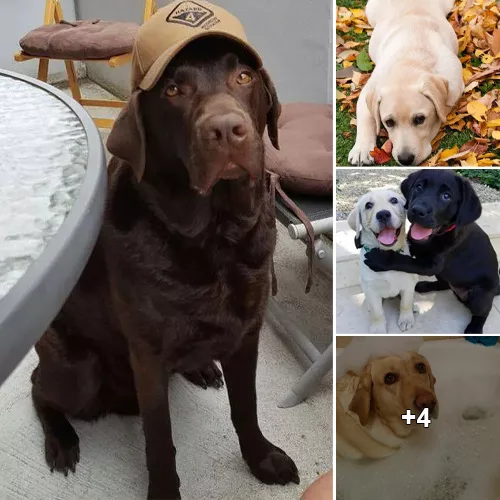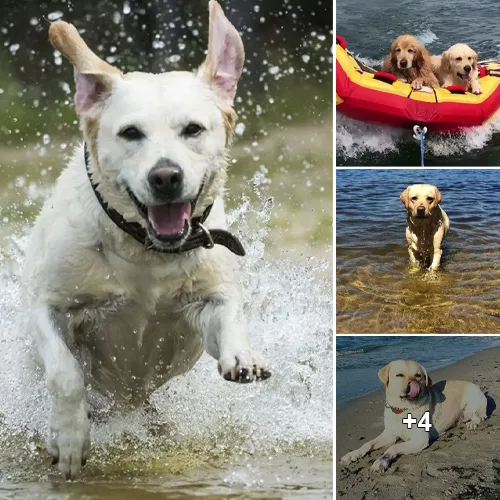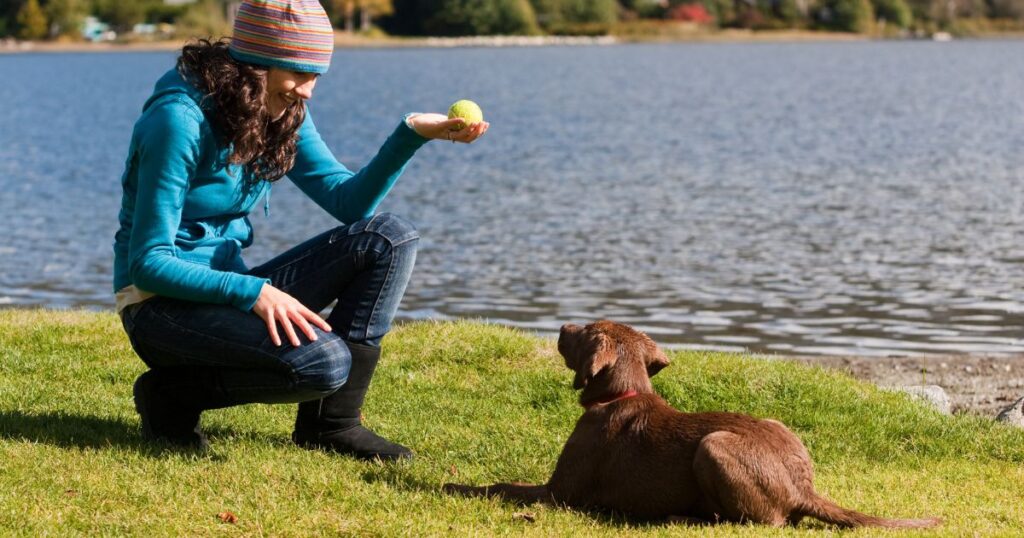
Training a Labrador puppy can be a fun and fulfilling process for both you and your furry friend. It’s important to start the training at the right time to set a strong base for lifelong learning and have a well-mannered and obedient companion by your side. The ideal time to start training your Labrador puppy varies depending on factors like age, temperament, and your chosen training approach. Opinions differ among trainers regarding the best age to kick off the training. Some experts suggest getting started as early as 4 weeks for dogs intended to work, while others recommend waiting until they are at least 8 weeks old and settled into their new environment. The key is to stay consistent and patient during the training process. Fortunately, modern techniques based on positive reinforcement make it possible to start training at a younger age without overwhelming the puppy. These methods emphasize rewarding good behavior and gently correcting unwanted actions. By beginning training at the right time and employing effective strategies, your Labrador puppy will grow into a well-adjusted and joyful dog that you’ll love having around. Understanding how puppies learn is essential in the training process. They are like sponges, soaking up information and experiences from their surroundings. By providing a positive and nurturing environment, you can help your Labrador puppy learn and develop into a well-behaved and loving companion.
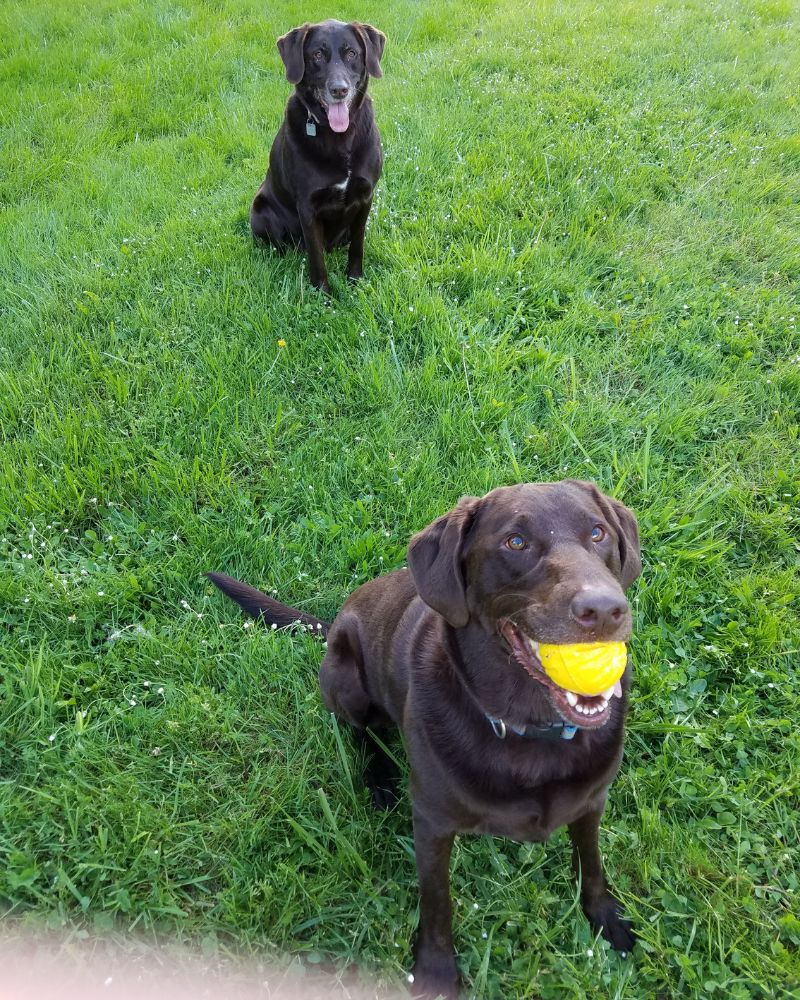
Labrador puppies, much like humans, learn and grow through their experiences and exposure to their surroundings. During their early stages of development, these pups act like sponges, eagerly soaking up information about the world. One key aspect of this learning journey is the introduction of training and socialization. Starting at the young age of 8 weeks, Lab puppies can begin their education with positive reinforcement techniques. By incorporating these modern methods, training becomes a stress-free and enjoyable process for both the pup and the trainer. Positive reinforcement consists of rewarding good behavior, praising desired actions, and making the learning experience a fun one with treats or other incentives. Due to their intelligence and trainability, Labs can quickly pick up on cues and commands from a young age. To ensure successful learning, it is important to utilize age-appropriate training exercises and maintain patience and consistency during training sessions. Breaking down the training into manageable segments will help the puppy better grasp and retain the information. In addition to training, socialization plays a vital role in your Lab puppy’s learning journey. Exposing them to different environments, people, and animals will help them navigate the world confidently and safely. It is recommended to avoid dog parks during the early months and instead focus on controlled and positive social experiences for optimal results.
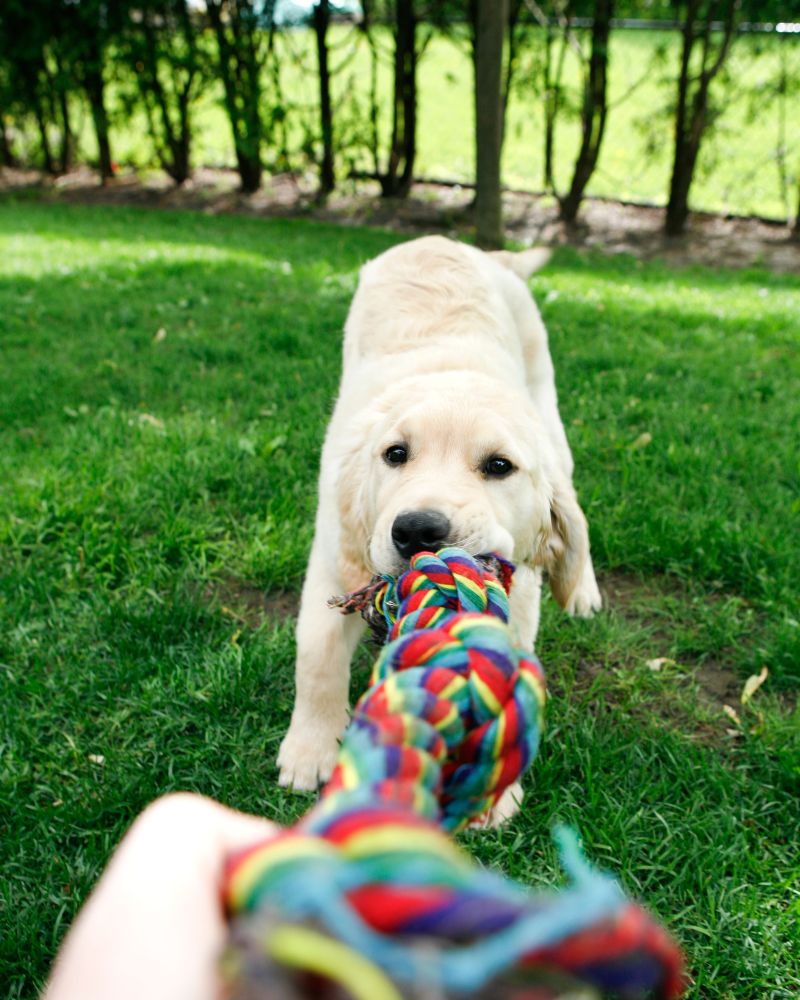
It is important to begin training a Labrador puppy at the right age to ensure their proper development and behavior in the future. The recommended time to start training is around 8 weeks of age, as this is a critical period for socializing and growth. Dr. Carmen Battaglia suggests that most behavior problems are established by 6 months, so starting early can help prevent or address any potential issues. When training your Lab puppy, it’s important to keep the exercises short and use positive reinforcement. This includes basic house-training, teaching impulse control, and gradually introducing socialization to avoid overwhelming the puppy. As the puppy grows, more advanced training can be introduced, adjusting the difficulty level based on their age and progress. Consistency, patience, and making the training enjoyable for both you and your puppy are key factors in successful training. It is recommended to use positive training methods with your puppy, focusing on rewards and encouragement rather than punishment.
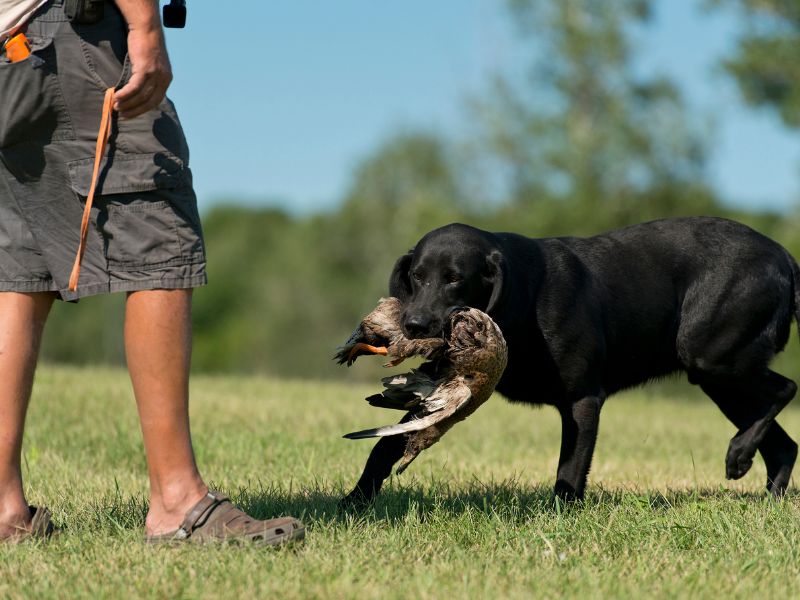
When it comes to training a Labrador puppy, it’s important to use positive reinforcement techniques to build a strong bond and encourage good behavior. Even at just 8 weeks old, puppies can start learning basic commands. Keep training sessions short, fun, and regular to keep them engaged. Positive reinforcement involves rewarding your puppy with praise, treats, or toys when they do something right. This helps them see that good behavior leads to good things. Make sure to give them their reward right after they follow a command to reinforce the link between the action and the treat. One effective method is luring your puppy with a treat to teach them new commands. For example, you can hold a treat above their nose to get them to sit, then reward them when they do. Repeat these exercises consistently to help them learn. Avoid using punishment or harsh training methods, as they can damage your relationship with your puppy and lead to fear or aggression. Instead, focus on teaching them what you want them to do rather than punishing them for mistakes. Creating a training schedule can also help you and your puppy stay on track. Introduce 2-4 new commands each month, starting with simple gestures and moving on to verbal cues as they progress. With positive training methods and a consistent schedule, your Labrador puppy will grow into a well-behaved and obedient friend, strengthening your bond along the way.
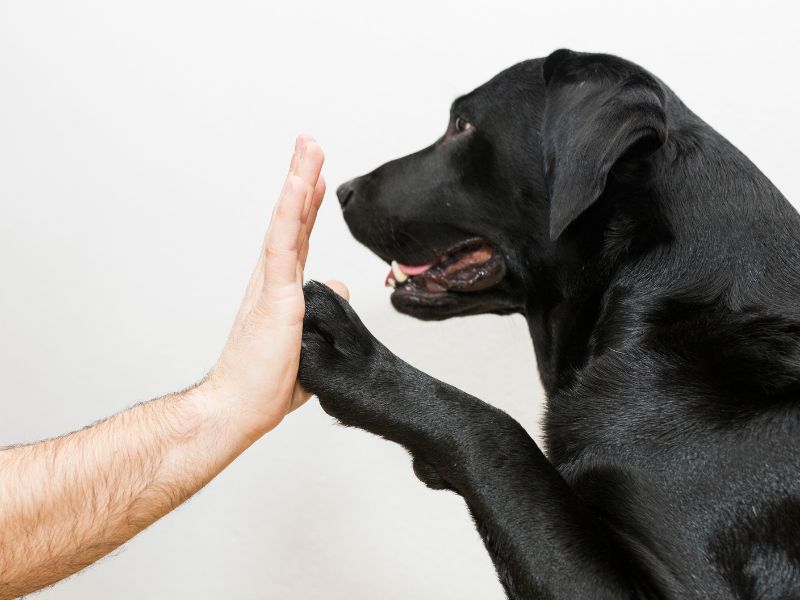
When it comes to raising a Lab puppy, there are a few key concepts that are important for their development. By focusing on these concepts, not only will training be smoother, but it will also help strengthen the bond between you and your furry companion. Socializing your puppy early on is crucial for their overall well-being. The Labrador Site suggests introducing your puppy to different people, other dogs, and various environments starting from as young as 8 weeks old. This exposure helps your Lab build confidence and adaptability, essential skills for navigating the world around them. Crate training is another important aspect of raising a Lab puppy. It assists with house-training and teaches your puppy to feel safe and comfortable in their crate. It’s important to introduce your puppy to the crate gradually and associate it with positive experiences like treats and praise. Lastly, teaching your Lab good manners is essential for a harmonious relationship. By setting clear boundaries and reinforcing positive behavior, you can help your Lab grow into a well-mannered and well-adjusted adult dog.
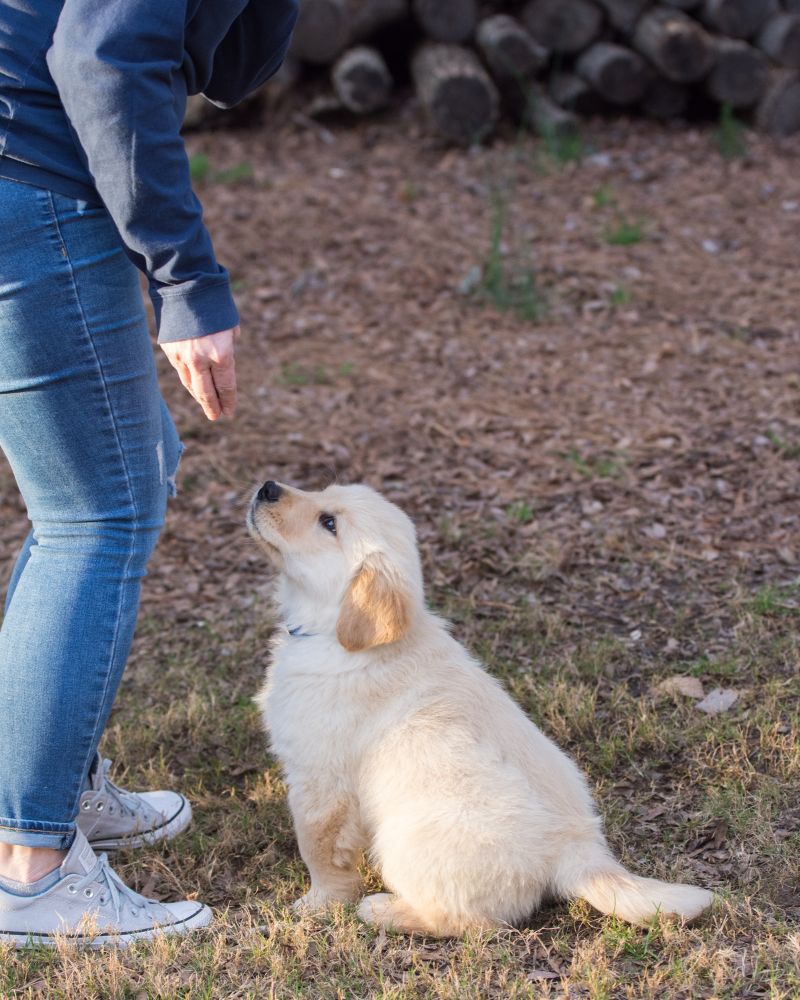
It is crucial to instill good manners in your Lab puppy from the get-go. Begin by teaching them simple commands like sitting, staying, and coming, as advised by PetMD. Rewarding your puppy consistently for obeying these commands sets the stage for a well-behaved dog. Using positive reinforcement, such as treats and praise, can help reinforce desirable behaviors. In addition to socialization, crate training, and etiquette, there are other key training elements for your Lab puppy to grasp, including: Leash training: Train your puppy to walk on a leash without pulling, ensuring enjoyable strolls and preventing mishaps. House-training: Set a schedule and employ positive reinforcement to teach your puppy where it’s appropriate to relieve themselves. Puppy-proofing: Eliminate potential hazards at home to create a secure environment for your Lab puppy to roam. By concentrating on these fundamental training principles, your Lab puppy will be well on their way to becoming a well-mannered and obedient companion. As for when to start training a Lab puppy to hunt, it’s typically recommended to wait until they are physically mature before introducing them to hunting practices. This ensures that your puppy is ready and capable of handling the demands of hunting training.
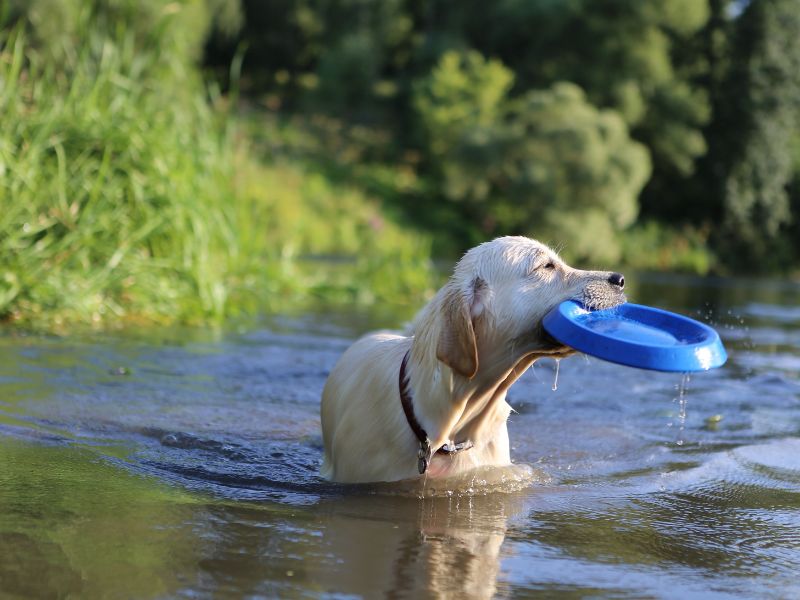
Commencing training for hunting purposes with a Labrador puppy is typically recommended at least six months old, although some experts suggest waiting until they are eight months old. This timeline allows them to grasp basic commands like sit, stay, and come, which are crucial for their hunting training later on. It is vital to establish a strong connection with your puppy before involving them in hunting activities. Starting with basic obedience training as early as eight weeks old helps your Lab puppy view you as a leader, laying the groundwork for more advanced hunting training in the future. When training a Labrador for hunting, it is beneficial to break down the process into smaller, manageable steps. Important elements to focus on include teaching them to respond to recall commands, introducing them to water (especially for waterfowl hunting), training them to track scents effectively, familiarizing them with gunfire sounds, and practicing retrieving both on land and in water. Patience and consistency are key as each Labrador Retriever puppy learns at their own pace, requiring personalized training to cater to their unique needs and abilities. Initiating training for a Lab puppy should ideally begin as soon as they join their new home, typically around eight weeks of age. Starting with socialization and basic manners at this age establishes a solid foundation for their future growth and development. As they mature, more advanced training methods can be introduced, focusing on obedience, recall, and leash etiquette. Maintaining patience, consistency, and positive reinforcement are essential for successful Labrador Retriever training. Keeping training sessions short, enjoyable, and interactive helps your Lab puppy retain the information they learn. Ensuring your home is puppy-proofed creates a safe and secure environment for your Labrador during their training journey. Commencing training early not only establishes good behavior but also strengthens the bond between you and your puppy. With dedication, time, and proper training techniques, your Labrador Retriever will grow into a well-behaved and affectionate member of your family.

